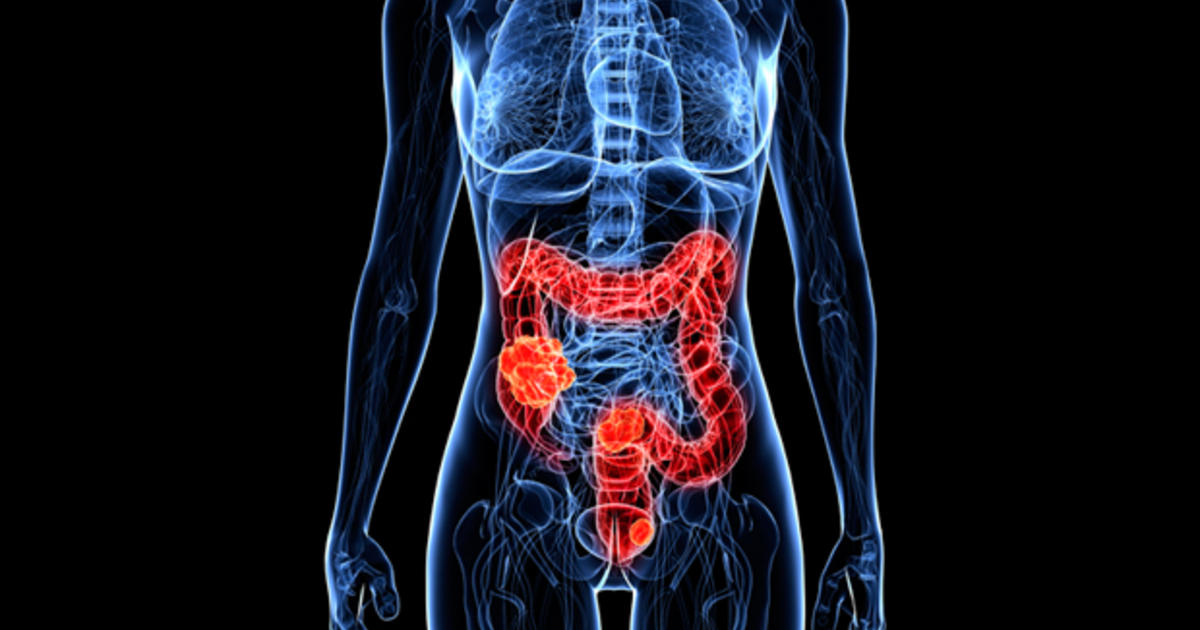Common Causes Of Wernicke-Korsakoff Syndrome
A blend of Wernicke's encephalopathy and Korsakoff syndrome, Wernicke-Korsakoff syndrome is a neurological disorder of the brain that happens due to the absence of the essential vitamin B1. Vitamin B1 is often referred to as thiamine, which is essential for the synthesis of glucose into energy, particularly for the brain. Without thiamine, the part of the brain called the hypothalamus is starved of energy, causing the functions of the pituitary gland, such as hormone secretion, metabolism, and mammillary bodies, to become impaired. Symptoms that manifest with Wernicke-Korsakoff syndrome are mainly cognitive and include a decline in short term memory, amnesia, and mental disorientation. Most often, individuals who have Wernicke-Korsakoff syndrome advance on to have a chronic memory disorder. Learn about what can cause the absence of vitamin B1 and eventually, Wernicke-Korsakoff syndrome now.
Colon Cancer

Patients who have been diagnosed with colon cancer have an increased risk of developing Wernicke-Korsakoff syndrome because of disease progression, malnutrition, and the administration of chemotherapeutic medications. Cancer progression and tumor growth are cells that multiply rapidly and out of control that metastasis or spread throughout the body. This rapid cell division process depletes reserves of important nutrients, including thiamine. Additionally, patients who present with colon cancer have a higher than normal basal metabolic rate. Elevated basal metabolic rate is known to trigger an abnormal process of thiamine depletion. Some forms of chemotherapy treatment medications containing agent 5-fluorouracil can also induce an advanced metabolism of thiamine. Patients who undergo chemotherapy and suffer from colon cancer often have severe pain that is only manageable with powerful painkilling medications that completely deplete the patient's appetite. In the case of colon cancer, thiamine deficiency and then Wernicke-Korsakoff syndrome are more associated with malnutrition than with poor absorption of nutrients.
Get to know the next cause of Wernicke-Korsakoff syndrome now.
Gastric Bypass Surgery

Gastric bypass surgery is a surgery done to improve the weight loss outcomes of individuals considered morbidly obese or those who have detrimental health issues and are also overweight or obese. Essentially, the stomach is made smaller and then the excess part of the stomach is bypassed right to the small intestine. This inhibits the absorption of calories from some food, which induces weight loss due to a lower caloric intake. However, for the same amount of calories bypassed, the nutrients, including thiamine, are also bypassed and not properly absorbed. This means the only thiamine absorbed for use by the body would be from the very small portions of food that do not follow through the bypass pathway.
Wernicke-Korsakoff syndrome is not a very common complication following gastric bypass surgery, but it is a risk of undergoing bariatric surgery. Usually, the very first subtle symptoms of Wernicke-Korsakoff syndrome will begin around thirty to one hundred days following gastric bypass surgery.
Learn more about what may cause Wernicke-Korsakoff syndrome now.
Eating Disorders

An eating disorder is characterized by intense disruptions in an individual's eating habits and behaviors in addition to the thoughts and emotions that drive it. The most common types of eating disorders are anorexia nervosa, binge eating disorder, and bulimia nervosa. The long term deprivation of nutrients that results from an eating disorder can deplete thiamine in the body, leading to Wernicke-Korsakoff syndrome. With eating disorders, the malnutrition is often so severe that the fats and minerals needed to correctly metabolize compounds like thiamine are not present. This means that not only is thiamine itself not provided to the body, but the body would likely not be able to absorb it even if it were provided. One study estimated at least one-third of all patients hospitalized for complications of an eating disorder had exhibited deficient levels of thiamine.
Continue reading to discover more information about the causes of Wernicke-Korsakoff syndrome.
Gastric Cancer

Gastric cancer typically originates in the lining of the stomach. When the mucus-producing cells become cancerous, the malignant lesion is called an adenocarcinoma. In many cases, parts of the stomach itself or glands surrounding it are removed completely. This already puts the normal functions of the stomach, including the digestion and absorption of nutrients such as thiamine, in a compromised state. On top of that, the factor of poor nutrition from food intake is depleted further by the reduced or absent appetite of patients with gastric cancer. It can sometimes be painful for patients with this kind of cancer to eat, or they may not be able to keep food down properly. Additionally, chemotherapy furthers the difficulty of getting and maintaining proper nutrient levels in the body. Chemotherapy agent 5-fluorouracil-based medications are also known to trigger the process of metabolic synthesis of thiamine, ridding the body of it too quickly. Both elements of poor nutritional intake and poor nutrient absorption equally contribute to the development of Wernicke-Korsakoff syndrome in patients with gastric cancer.
Unveil perhaps the most common cause of Wernicke-Korsakoff syndrome now.
Alcoholism

Alcoholism is the leading cause of Wernicke-Korsakoff syndrome. Alcohol obstructs the absorption of essential nutrients, including thiamine. Alcohol is also very destructive to the stomach cells, which causes the overproduction of abrasive stomach acids that additionally inhibit the absorption of nutrients. The liver has to metabolize the alcohol consumed, depleting valuable resources and potentially causing malnutrition. Individuals dealing with alcoholism also tend to neglect their nutritional needs by consuming alcohol in place of meals. This compounds the malnutrition already caused by damage to the stomach, resulting in a vitamin B1 deficiency and Wernicke-Korsakoff syndrome. The mammillary bodies in the brain become damaged from a lack of proper energy due to thiamine's absence.